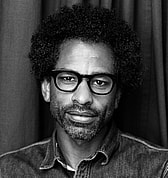Editor’s note: The following article is an op-ed, and the views expressed are the author’s own. Read more opinions on theGrio.
The Jayland Walker shooting video is very hard to watch.
It hurt me to my soul to see the bodycam footage of all those cops unloading their clips on the 25-year-old man. The Akron, Ohio, police fired about 60 bullets at him. The sound of so many bullets flying for so long is horrifying. How could that much force be necessary? How is it so many white mass murderers can walk off to prison unscathed while young Black boys who are suspected of so much less often get their bodies filled with bullets? How is it that a Kentucky man who’s suspected of domestic violence can shoot and kill three police officers and later walk into custody unshot? There are clearly different sorts of policing for Black and white people.
The whole Jayland Walker scene reminded me of slavecatchers descending on their mark and unleashing their inhumane worst—there was a chase and a capture and there was no respect for human life. The cops fired recklessly and wantonly and overzealously at a person who was not holding a weapon. They fired endlessly as if to destroy his body. It felt like they fired out of revenge and a desire to assert their superiority. I watched that video many times, steeped in pain and wracked with the feeling that almost any Black person on any street in any big city could end up in a video like that. You could be Philando Castile driving with your family or John Crawford shopping in a store or Tamir Rice paying in a park when suddenly you’re in a video. Maybe, one day, I could be in one. Maybe, God forbid, you could be in one. We are all eligible.
I am traumatized by the Jayland Walker video, but I’m already traumatized by the mountain of videos of Black people being shot and killed by police that have emerged over the last several years. All those clips sit in my mind like a heavy weight. Like a reminder of how quickly Black life can be extinguished. I think almost all Black people have about 20 to 25 short videos of Black people being killed by police in their short-term memory right now. We’re walking around holding lots and lots of clips of horrific Black death in our minds. If I say George Floyd, we can all see an image of him being murdered. If I say Eric Garner or Philando Castile or Tamir Rice or Alton Sterling or Daunte Wright or Laquan MacDonald or now, Jayland Walker, you can see the video of their death in your mind’s eye.
We all are carrying the pain of watching those videos inside us. This is part of what it is to be Black today—you have to live with a plethora of videos of horrific Black death sitting in your memory, easily accessed, all the time. You have to see these videos over and over and over on TV, on YouTube, and in your mind’s eye. What is this—being oversaturated with images of Black death—doing to us? What does it do to an entire community to walk around with lots of horrific videos of Black death in your mind all the time?
I think it does the same thing that lynching did to our ancestors—it traumatizes us over and over. Lynching was domestic terrorism meant to perpetuate the racial hierarchy and keep Blacks in fear of violating it. These police killings also perpetuate the racial hierarchy and remind us that some white people are deputized to hunt and kill us. I’m definitely more afraid of the police than of any professional criminals in my city who might try to mug me or something. The criminals don’t have the impunity that comes from qualified immunity. The criminals don’t have the audacity that comes from being sanctioned by the state. The modern police are the descendants of slave catchers and they continue to police in a way that shows that Black bodies are expendable. How can we expect justice and fairness from cops who train using targets showing Black men?
In the era of iPhones and bodycams, police killings are being caught on camera, and in one way, they can work in our favor. These videos can help us get justice—the murder of George Floyd would’ve been swept under the rug without video. Taken together, these videos show the police being reckless and homicidal toward Black bodies and they prove our point that the police do not respect Black lives. But at the same time, these videos also show us how little justice there is in the world for us and how little we matter. I am traumatized but I am traumatized by so much of America.

Touré is a host and Creative Director at theGrio. He is the host of the podcast “Toure Show” and the podcast docuseries “Who Was Prince?” He is also the author of seven books including the Prince biography Nothing Compares 2 U. Look out for his upcoming podcast Being Black In the 80s.
TheGrio is FREE on your TV via Apple TV, Amazon Fire, Roku, and Android TV. Please download theGrio mobile apps today!


